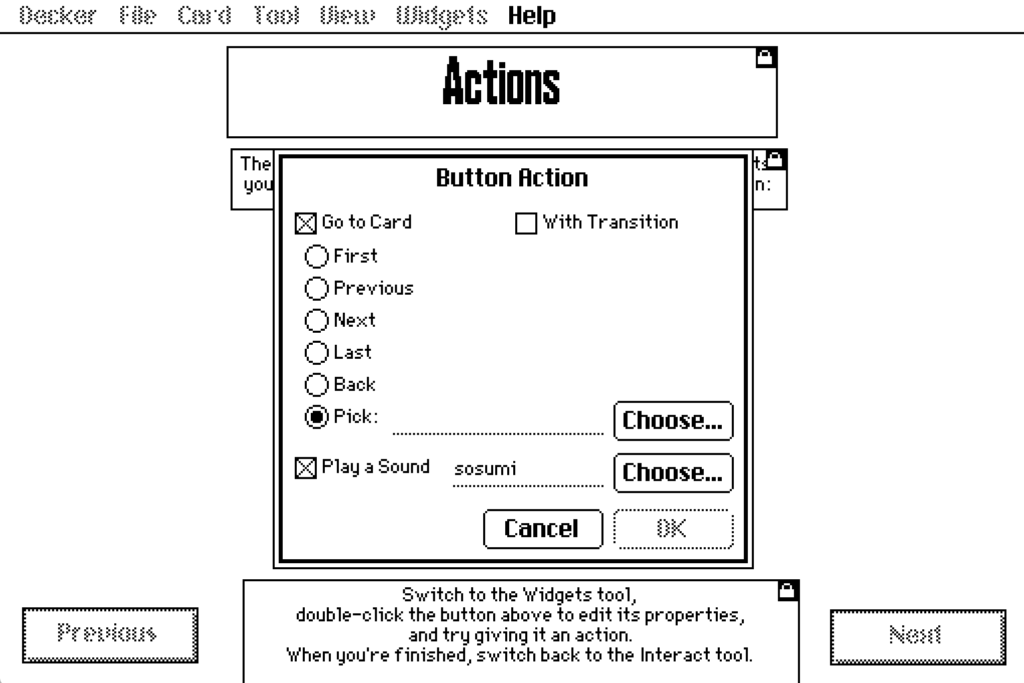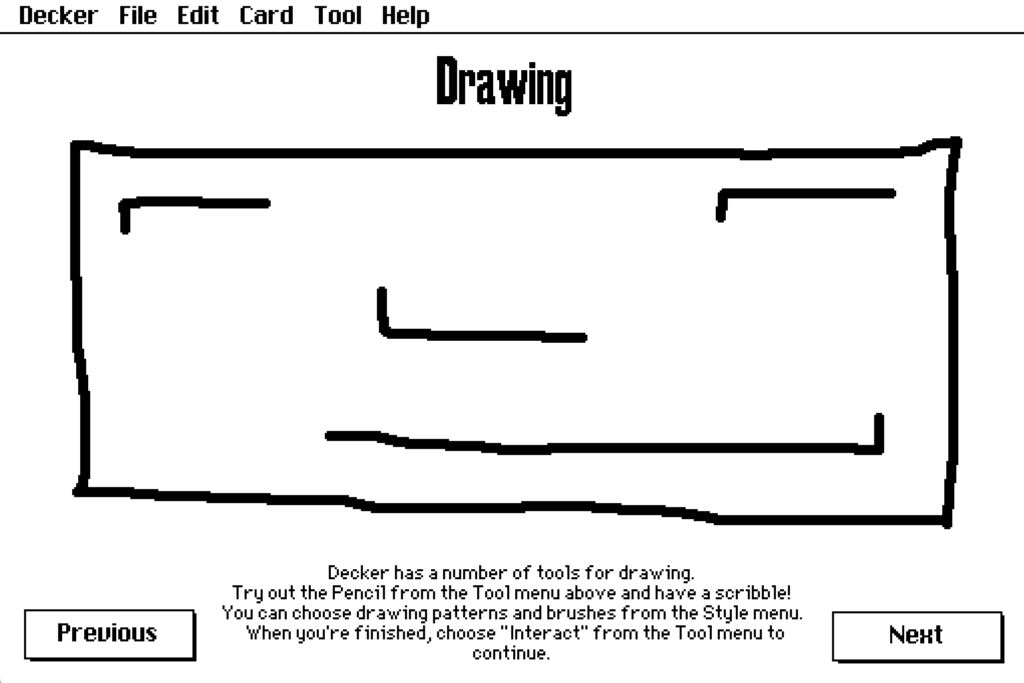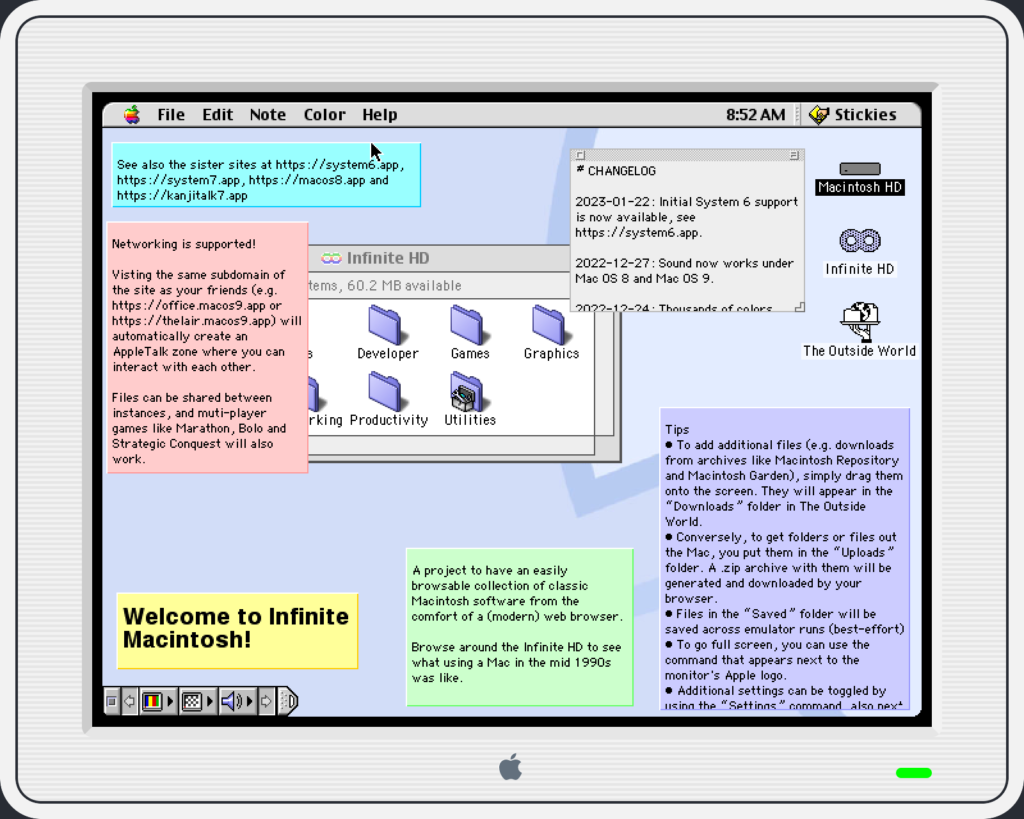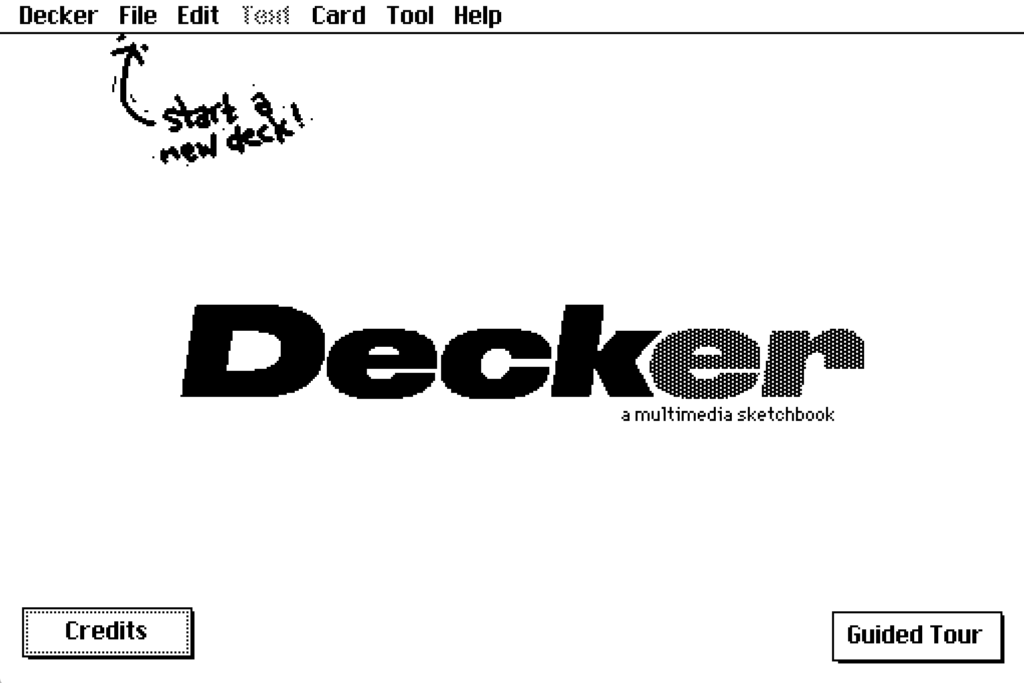
The history of computers is filled with great transformative ideas that never took off, or sometimes, were even actively sabotaged.
One of those ideas was Hypercard, a “multimedia authoring system” for Mac OS Classic. One way to describe it is like an individual website, contained within a file on your computer, that you could click around and explore. Unlike websites, instead of learning a special language to create documents in it, it has its own creation system that allowed users to wield the Macintosh’s powerful UI to make things.
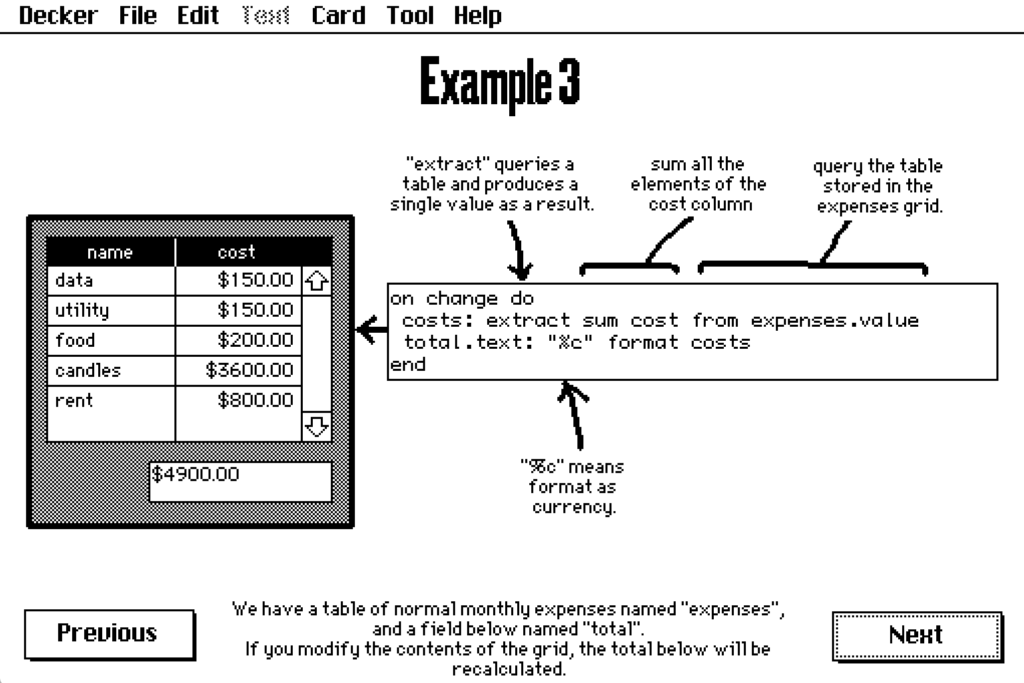
Hypercard was an early version of several different things. Of course its concept of linking between different “cards” of information was influential to the design of the World Wide Web. Its method of placing controls onto cards and attaching code to them is reminiscent of RAD development environments like Delphi and Visual Basic. And its multimedia capabilities allowed for the creation of full games, the most prominent example of which, of course, is Cyan’s Myst. Hypercard also could be seen as the inspiration, with varying degrees of directness, of a swath of creations ranging from TWINE to alienmelon’s Electric Zine Maker.
But wait! Don’t we live in something rich people call the “free market?” Aren’t superior products supposed to make their creators (and, of course, investors) billions of dollars? Why aren’t we all making Hypercard stacks now, on our Macintosh System 29 computers? Of course: it’s because good things are not necessarily profitable, that corporate politics matter much more than the intrinsic worth of a technology, marketing is grotesquely powerful yet also somehow overvalued, and finally, the World Wide Web came out and essentially did it one better.
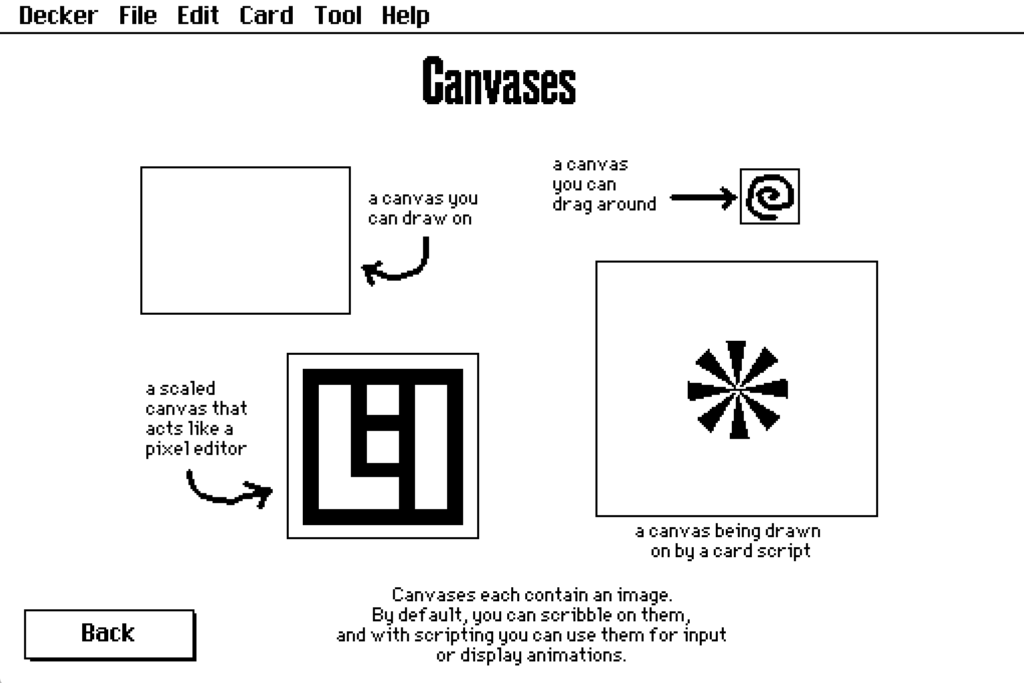
Yet Hypercard still has its fans even today. Decker (not Docker), the subject of this post, is a kind of homage to Hypercard made for current OSes. It looks, on purpose, like it’s a program for early versions of Classic Mac OS, with 1-bit graphics and copious use of dithering. Yet despite that it’s still reasonably powerful. So, rediscover the promise of computing circa the late 80s, with Decker.
Decker (itch.io, $0, for Windows, Mac and Linux)
